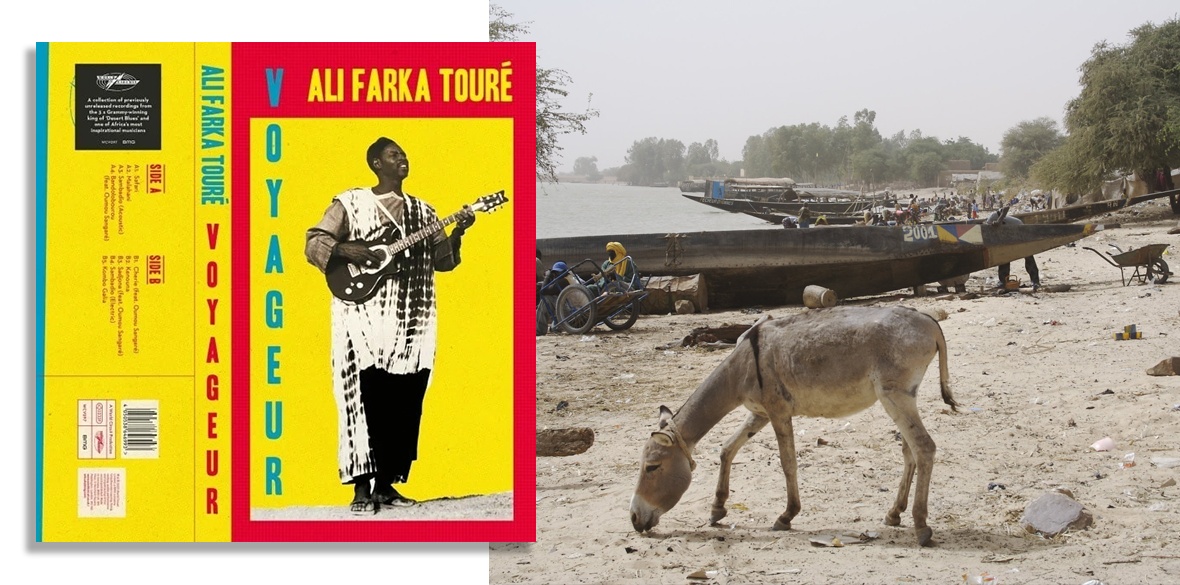This is the last article you can read this month
You can read more article this month
You can read more articles this month
Sorry your limit is up for this month
Reset on:
Please help support the Morning Star by subscribing here
THE “father of the desert blues”, Ali Farka Toure was born in 1939 into Mali’s “noble” caste — which meant he was forbidden to play musical instruments. Growing up in Niafunke in Northern Mali, he secretly made a one stringed instrument with a tin can and baling wire.
After working on farms and as a chauffeur he became a recording engineer at Radio Mali. He acquired an electric guitar and sent tapes to Sonafric, the Paris-based record label which issued them on albums featuring the hypnotic vocals and mesmeric guitar playing which would later propel him to international stardom.
The albums were poorly distributed but BBC DJ Andy Kershaw found a copy of one while on a record-hunting trip in Paris. Kershaw played tracks from the album on his radio show and the response from listeners was overwhelming, prompting Anne Hunt, co-founder of World Circuit Records, to head to Mali to find Toure — finally locating him via messages on Radio Mali. She brought him to Britain where he recorded a debut set for the label in 1987.
Upon its release Toure was dubbed “the African John Lee Hooker” by the music media, which also proclaimed the roots of the blues had been located in northern Mali. “The word blues does not exist in my music. It is a Western phrase. I play authentic music — the roots of what you would call the blues,” was Toure’s response. He also said he admired Hooker and had been listening to his records for some years!
Stardom, sold-out concerts and music festivals followed with best-selling albums released between 1987 and 2004 on World Circuit – including Grammy Award winners with Ry Cooder and with kora player Toumani Diabate.
In 2004 he returned to Niafunke, became the mayor of the village and used his own money to build roads and sewers and install electricity generators.
Sixteen years on from his death in 2006 World Circuit have released a new set called Voyageur — with nine unissued sides by Toure recorded on the road and in the studio.
Produced by World Circuit’s Nick Gold with Toure’s son Vieux Farka Toure (himself a guitar genius), Voyageur’s songs reflect the cultural diversity of Mali — Toure sings in five languages on tracks cut on the road and in the studio with electric and acoustic tracks and three tracks featuring fellow Malian superstar singer Oumou Sangare. I expect Voyageur to appear to be at the top global music awards nominations later this year.
Talking of rarities, Analog Africa’s critically acclaimed reissue series of Edo Funk continues with No Food Without Taste If By Hunger — Chapter One by The Good Samaritans which features six tracks penned, played and produced by the obscure “Brother Angel” Philosopher Okundaye and recorded by assorted musicians in East Lagos.
This is pulsating sax-led jazz-funk and Nigerian highlife music complete with wah-wah guitar, electric keyboards, snapping bass and funky drums released as a private pressing which reportedly got Benin City into a groove in the early 1980s.
Just who Okundaye was (or is) remains a mystery to me — but the gaudy repro of the home produced sleeve refers to him as being “no more of this world”.
Get your dancing shoes out!







